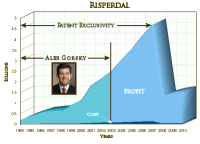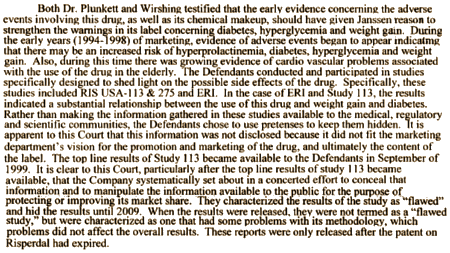New York TimesBy HARLAN M. KRUMHOLZFEB. 2, 2014LAST week, Johnson & Johnson announced that it was making all of its clinical trial data available to scientists around the world. It has hired my group, Open Data Access Project, or YODA, to fully oversee the release of the data. Everything in the company’s clinical research vaults, including unpublished raw data, will be available for independent review. This is an extraordinary donation to society, and a reversal of the industry’s traditional tendency to treat data as an asset that would lose value if exposed to public scrutiny. Today, more than half of the clinical trials in the United States, including many sponsored by academic and governmental institutions, are not published within two years of their completion. Often they are never published at all. The unreported results, not surprisingly, are often those in which a drug failed to perform better than a placebo. As a result, evidence-based medicine is, at best, based on only some of the evidence. One of the most troubling implications is that full information on a drug’s effects may never be discovered or released. Even when studies are published, the actual data are usually not made available. End users of research — patients, doctors and policy makers — are implicitly told by a single group of researchers to “take our word for it.” They are often forced to accept the report without the prospect of other independent scientists’ reproducing the findings — a violation of a central tenet of the scientific method.
To be fair, the decision to share data is not easy. Companies worry that their competitors will benefit, that lawyers will take advantage, that incompetent scientists will misconstrue the data and come to mistaken conclusions. Researchers feel ownership of the data and may be reluctant to have others use it. So Johnson & Johnson, as well as companies like GlaxoSmithKline and Medtronic that have made more cautious moves toward transparency, deserve much credit. The more we share data, however, the more we find that many of these problems fail to materialize…
This program doesn’t mean that just anyone can gain access to the data without disclosing how they intend to use it. We require those who want the data to submit a proposal and identify their research team, funding and any conflicts of interest. They have to complete a short course on responsible conduct and sign an agreement that restricts them to their proposed research question. Most important, they must agree to share whatever they find. And we exclude applicants who seek data for commercial or legal purposes. Our intent is not to be tough gatekeepers, but to ensure that the data are used in a transparent way and contribute to overall scientific knowledge.
There are many benefits to this kind of sharing. It honors the contributions of the subjects and scientists who participated in the research. It is proof that an organization, whether it is part of industry or academia, wants to play a role as a good global citizen. It demonstrates that the organization has nothing to hide. And it enables scientists to use the data to learn new ways to help patients. Such an approach can even teach a company like Johnson & Johnson something it didn’t know about its own products. For the good of society, this is a breakthrough that should be replicated throughout the research world.
 It feels like we’re only going to have one shot at Data Transparency, and we need to get it right. And at least in the realm of psychoactive medications, the level of misbehavior by the pharmaceutical industry is the stuff of legend. When and if the history is ever written, Johnson & Johnson will probably have a whole chapter all to themselves. The TMAP Program in Texas alone would qualify them, but there were other things including the nearby Excerpta Medica that ghost wrote Risperdal® articles faster that J&J could recruit KOLs to sign them, the J&J Center at MGH for Dr. Biederman’s Childhood Bipolar fantasies, Omnicare contracts for over-medicating the elderly, etc. Before getting a warm glow about this article, read the Rothman Report from the J&J trial in Austin several years ago. Their track record defines the word ruthless. So pardon me if I approach the plan above with a skeptical eye.
It feels like we’re only going to have one shot at Data Transparency, and we need to get it right. And at least in the realm of psychoactive medications, the level of misbehavior by the pharmaceutical industry is the stuff of legend. When and if the history is ever written, Johnson & Johnson will probably have a whole chapter all to themselves. The TMAP Program in Texas alone would qualify them, but there were other things including the nearby Excerpta Medica that ghost wrote Risperdal® articles faster that J&J could recruit KOLs to sign them, the J&J Center at MGH for Dr. Biederman’s Childhood Bipolar fantasies, Omnicare contracts for over-medicating the elderly, etc. Before getting a warm glow about this article, read the Rothman Report from the J&J trial in Austin several years ago. Their track record defines the word ruthless. So pardon me if I approach the plan above with a skeptical eye.
| Consultant / Advisory board | United Healthcare |
|
|
|
| Speaker’s bureau | Centrix |
|
|
|
| Equity | ImageCor |
|
|
|
| Grant / Research support | FDA; NIH-NHLBI; Commonwealth Fund; The Catherine and Patrick Weldon Donaghue Medical Research Foundation; Robert Wood Johnson Foundation; Medtronic |
|
|
|
| Editorial boards | American Journal of Managed Care; American Journal of Medicine; Archives of Medical Science; BMJ.com/US; Central European Journal of Medicine; Circulation: Cardiovascular Quality and Outcomes; Congestive Heart Failure; Critical Pathways in Cardiology; Current Cardiovascular Risk Reports; JACC: Cardiovascular Imaging; Journal of Cardiovascular Medicine |
|
|
|
| Leadership positions in professional societies | American Board of Internal Medicine (Chair, Assessment 2020 Task Forces); American College of Cardiology (CV Research and Scholarly Activity, and Lifelong Learning Oversight Committee); American College of Physicians (CV Research and Scholarly Activity); American Heart Association (CV Research and Scholarly Activity); Centers for Medicare & Medicaid Services (Heart Care Technical Expert Panel); Oklahoma Foundation for Medical Quality (Heart Care Technical Expert Panel); VHA, Inc. (Center of Applied Healthcare Studies External Advisory Board) |


We require those who want the data to submit a proposal and identify their research team, funding and any conflicts of interest. They have to complete a short course on responsible conduct and sign an agreement that restricts them to their proposed research question.
- Those of us who want to "check their work" aren’t necessarily academics, particularly in psychiatry. We might not have any funding at all, and may be voluntarily operating with a PC, Excel, and a free copy of "R."
- We need some recognition that our goal is considered a research topic – namely, "Are they telling the truth in the published paper or are they presenting the data in a way that misleads the reader [like so many have done before]? Are they withholding data to make their drug look more efficacious or safer than it really is [like so many have done before]?" Putting the "re" in research!
I hope all persons with brains and guts in psychiatry — yourself, David Healy, Joanna Moncrieff, etc. etc. — can organize to demand the proof of this pudding, in the form of a full dish of Risperdal data without preconditions. There may be more potential, with the YODA project and Harlan Krumholz, to force the door open for real, than with GSK and its praise-singer Ben Goldacre. And if not, then that’s a valuable thing to know as well. His Twitter handle is @hmkyale if you want to poke him.
As a man with a dose of INFUSE in his back, Mickey, you have two good reasons to speak out. I think the YODA investigation into Medtronic’s back-surgery disaster was the real thing, and contributed to a sharp drop in sales of this product. It did give me a slight chill to see it spoken of in such “positive” terms in the NYT, since as I read them neither study was all that reassuring to INFUSE users. More like, one study should leave you somewhat worried, and the other should leave you scared s–tless.
In the case of Risperdal, some of the AUTHORS of the studies might get the chance to see the company’s data for the first time! See this confession:
http://chronicle.com/blogs/percolator/major-fraud-plea-has-university-scientists-regretting-journal-article/33713
“It has hired my group, Yale University Open Data Access Project, or YODA, to fully oversee the release of the data.”
Why is the open data group named after a puppet?